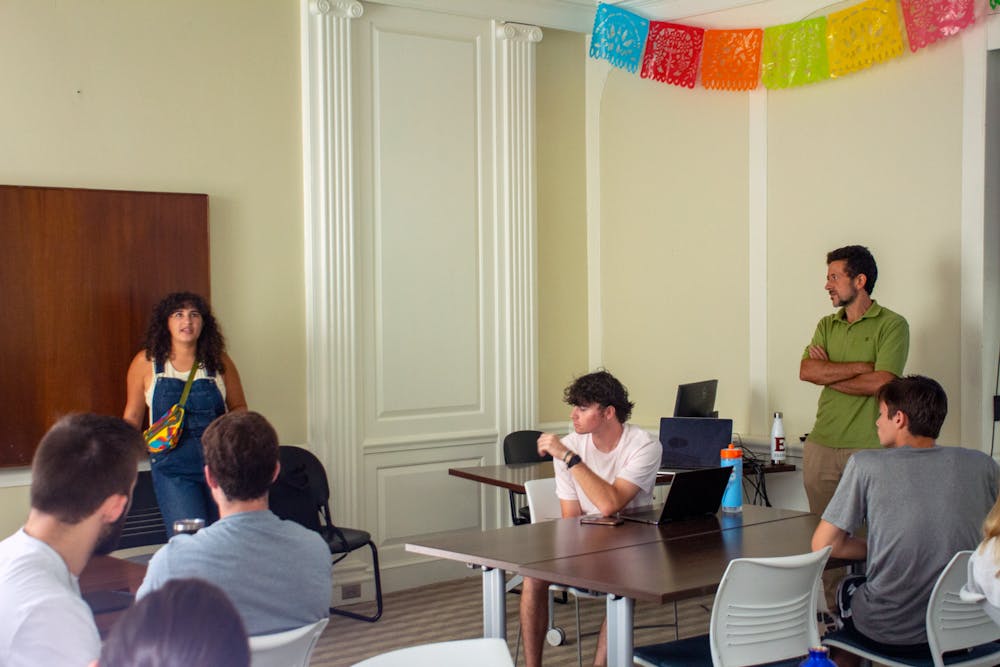Professor of Spanish Federico “Fede” Pous is bringing new perspectives of learning to Elon University students as one of 10 nationwide faculty members in the third cohort of the Andrew W. Mellon Periclean Faculty Leadership program.
This fellowship provides financial and academic support to faculty members who are creating courses focusing on one of six social issues: climate change, education access, immigration, mass incarceration, race and inequality and voter engagement. As the coordinator for the peace and conflict studies minor, and long-time social justice scholar, Pous said he knew the program would be a good fit. Following his acceptance, he created a class focusing on the struggles of immigration in the U.S.
“My main motive in terms of teaching is to teach how to think about social justice issues. Throughout the years, I developed different ways of teaching that try to get students to understand things from a different perspective,” Pous said.
Periclean Faculty Leaders are encouraged to collaborate with a community organization as a part of their class, and Pous chose Witness for Peace, a grassroots organization that advocates for human rights and nonviolence in Latin American nations. Pous has worked with its southeast branch for various community-building workshops since he moved to North Carolina, so he said the partnership was an easy decision.
“I want students to get a good sense of what it means to be undocumented in this country, not only from the readings, but also from direct contact with people,” Pous said. “I feel like this [partnership] with Witness for Peace is key for that.”
Throughout the semester, students in Pous’s Exploring Identity class will meet with representatives from Witness for Peace, using what they learn by the end of the semester to create educational workshops for the organization to use. Pous said it was important to him that the collaboration with Witness for Peace was mutually beneficial, with students gaining knowledge about the importance of social outreach and Witness for Peace gaining educational tools for their own practices.
Pous said he hopes that by introducing hands-on learning to his class through the collaboration with Witness for Peace, he will expose students to perspectives they may have not considered before and encourage them to engage in a different form of learning than a typical classroom setting provides.
“I think it’s important in the university setting for students who are interested in social justice to get to know what’s going on in the real world,” Pous said. “If you get to experience that … it allows you to be exposed to a different way of thinking and intervening in social life. That’s my goal as a teacher, that you come out of class with a sense that you learned something about your connection with the world.”
Sophomore Jillian Dolman, a student in Pous’s Exploring Identity class, said that the hands-on nature of Pous’ class was very important to her when deciding which Spanish course she would take this semester.
“The hands-on component of the class was one of the major reasons why I chose this particular class,” Dolman said. “As an exercise science and bio major, my days are filled with STEM classes and can begin to feel monotonous. A hands-on Spanish class filled with new and interesting content helps to break up my week. I genuinely look forward to attending this class.”
From Dolman’s perspective, Pous’s goal that his class would provide different perspectives and new ideas to students seems to have come to fruition. Dolman said that both Pous’s teaching style and the activities he plans for class make his class unique.
“Fede’s class is very different from other classes at Elon,” said Dolman. “We lead the conversation and Fede guides us through it. I think this just goes to show that there are different ways to teach that are still very effective.”


